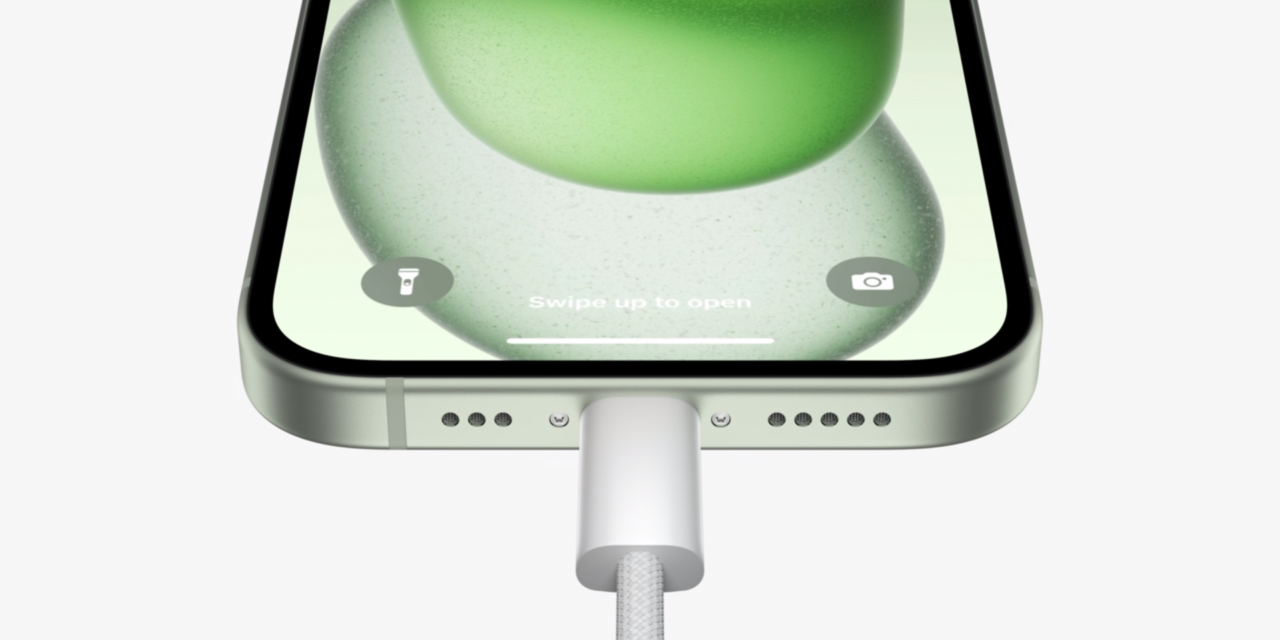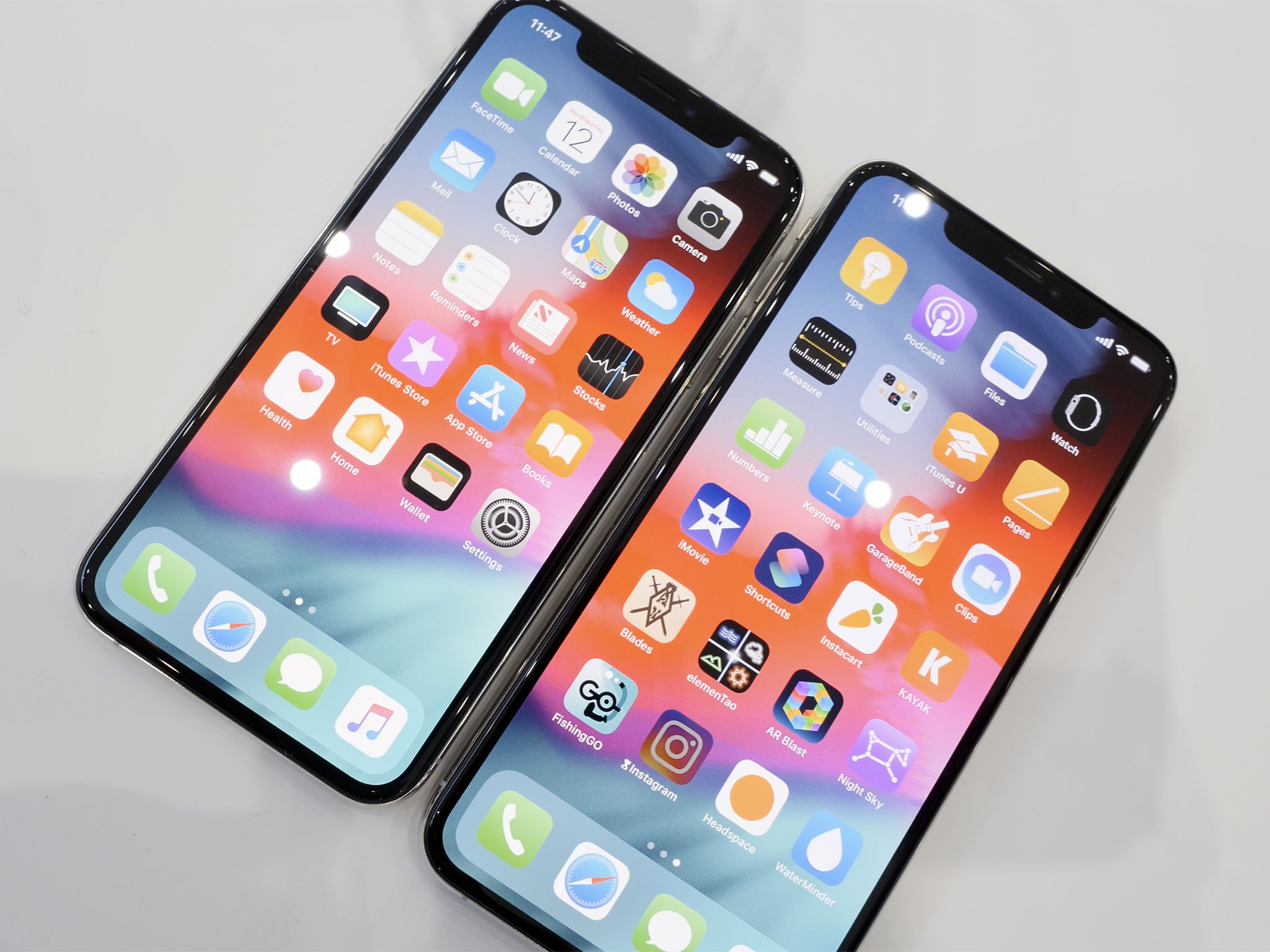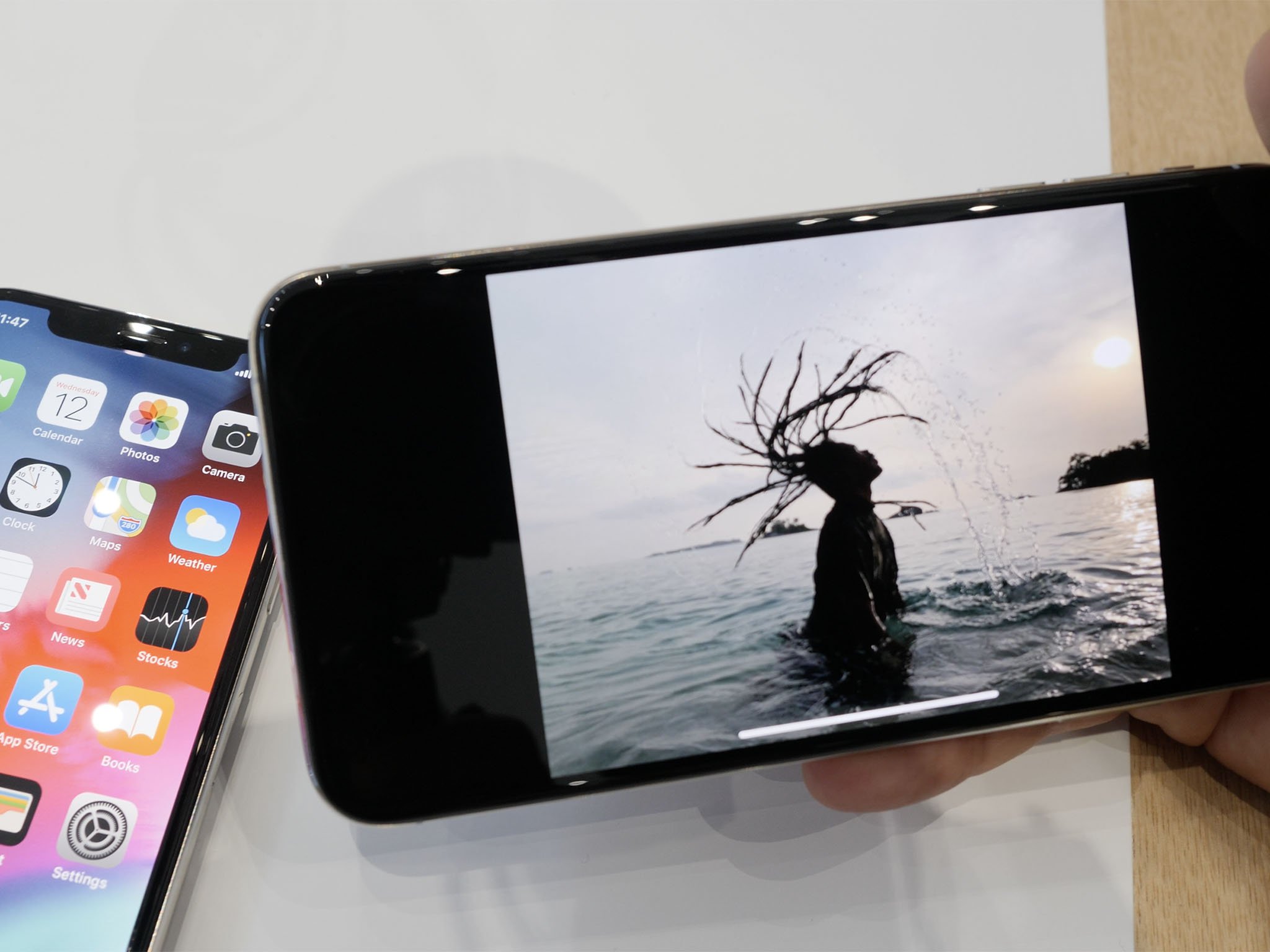Should you get the 64GB, 256GB, or 512GB iPhone XS or iPhone XS Max? Here’s how to pick the perfect storage capacity for you!
If all you do is text, stream, and access web portals, you’ll probably be able to live on 64GB. If you shoot 4K 60 fps video, download all your media, and want tons of apps, 512GB might be the blessing you’ve been waiting for. Either way, you’re going to want to choose the best iPhone XS or iPhone XS Max storage capacity to fit your needs. Here’s what you need to consider!
Price per gigabyte breakdowns
Many products are segmented from entry level to standard to premium. Appliances, gadgets, even food brands. Entry level gets you in the door and premium is for those who want or need more. Apple could segment iPhones based on processor speed or color but the company prefers storage size. It’s easy for everyone to understand: More money buys you more storage.
For iPhone X or iPhone 8, rather than the traditional three storage tiers, Apple is only offering two:
iPhone XS, full price:
- 64GB: $999 or $15.61 per GB
- 256GB: $1149 or $4.49 per GB
- 512GB: $1359 or $2.65 per GB
iPhone XS Plus, full price:
- 64GB: $1099 or $17.17 per GB
- 256GB: $1249 or $4.88 per GB
- 512GB: $1449 or $2.83 per GB
So, the lowest priced iPhones are just that, but the premium models give you far, far more gigabyte bang for your buck.
- If you can’t afford anything more, 64GB gets you in the door.
- If you want the best value for your money, 512GB is it. Especially on the non-Max iPhone XS.
Local vs. Cloud storage
Apple’s iCloud gives you free, unlimited storage for all your iTunes stuff. That includes iBooks, music, movies, TV shows, and apps. You also get 5GB of additional storage for backups, data, and photos. You can purchase more iCloud storage if you need it, and Apple has just dropped expanded their paid tiers:
- 5GB – Free
- 50GB: $0.99/month
- 200GB: $2.99/month
- 2TB: $9.99/month
iCloud integrates with iOS and macOS and otherwise keeps all your stuff connected and collected. Thanks to some really intelligent nearline management, iCloud can help make sure you’re recent and frequently accessed content is instantly available, and your older and infrequently accessed content is only a tap and a download away when you need it.
If you prefer other solutions, there’s also built-in storage provider support for Dropbox, One Drive, Google Drive, and more. They also all tie right into the iOS 12 Files app.
The Cloud still can’t take the place of lots of on-device storage — you can’t shoot 4K video straight to the cloud, for example — but it can help you get the most of what you have.
- If you use a lot of cloud services you may be able to eek the most out of 64GB.
- If you don’t use or like the cloud, you’ll want to stick with 256GB.
- If you’re a digital pack rat, and only local will do, maybe you need 512GB.
Photos and videos
iPhone X and iPhone 8 don’t just shoot 4K video — it can shoot 4K video at 60 fps. If that’s something that interests you, be aware it will chew through a ton of local storage and fast. iCloud Photo Library can help nearline a lot of that for you, but then you have to pay for iCloud Photo Library. Other services and even offloading to your PC can free up storage but it’s a chore you’ll have to keep doing whenever you shoot, and you might still run out of space if you shoot a lot between offloads.
- If you hardly ever shoot photos or video, 64GB may do you.
- If you shoot a ton of photos, and especially video, you’ll want 256GB.
- If you shoot all the photos and videos, and don’t offload regularly, you may want 512GB
Apps and Games
Thanks to new technologies like app thinning — asset slicing, on-demand resources, and bitcode — Apple and developers can do a lot to keep apps and games slim and trim. Effectively that means not downloading anything they don’t need to download onto your iPhone, unless and until they need to download it. iOS 11 will even offload apps and games you haven’t used in a while.
Still, not every app lends itself to significant thinning. So, if you download a ton of games or apps with a lot of graphics and video — hello Snapchat, Twitter, Facebook, and Instagram! — you can still use up a lot of storage.
- If you keep your iPhone light on apps and games, you might be able to get away with 64GB.
- If you want to have tons of apps and games on your iPhone all the time, you’ll need 256GB.
- I’m hard pressed to think of any amount of apps or games that’ll push you all the way to 512GB.
Media
HDR video is the future. Even with HEVC (H.265) compression, though, it still takes up a lot of space. If you’re simply streaming, as long as you have enough space for at least one movie per Netflix, Amazon, Hulu, etc. to buffer, you’ll be ok. If you want to download for watching offline, like on plane rides or road trips, you’ll need a lot more. Same with Apple Music, Spotify, and music streaming. But music files, though small, can add up if you want to keep tons of songs and albums on your iPhone.
- If you stream almost everything, you might be able to get away with 64GB.
- If you prefer to download your movies, TV Shows, or music, you’ll need 256GB.
- If you’re going away on an incredibly long trip and want vast amounts of content, you can go to 512GB.
Who should get the 64GB iPhone XS or iPhone XS Max?
If you really only want an iPhone for streaming, if you live on the cloud, if you only do light social and gaming, if you have an iPad or computer that stores your long-term data and collections, and you don’t intend to keep a ton of content on your phone, then you’ll be okay with 64GB.
Who should get the 256GB iPhone XS or iPhone XS Max?
If you don’t want to worry about running out of space but don’t think you’ll ever really max it out, if you mix the cloud and on-device, if you want the happy middle ground, the sweet spot, the best for the most, then get 256GB.
Who should get the 512GB iPhone XS or iPhone XS Max?
If you really do want your iPhone to do everything, all of the time, and never (or rarely) have to worry about running out of space or going to the cloud, if you want to shoot a ton of photos and 4K video without having to offload it, or if you simply want to make sure you’re future proofed well into the future, then you’ve probably already decided on the 512GB iPhone, haven’t you?
Still undecided?
If you literally can’t afford a dime over $999, get the 64GB iPhone XS. Otherwise, get the 256GB. The difference isn’t that much over the course of a year or two but the extra storage capacity really will be.










Recent Comments